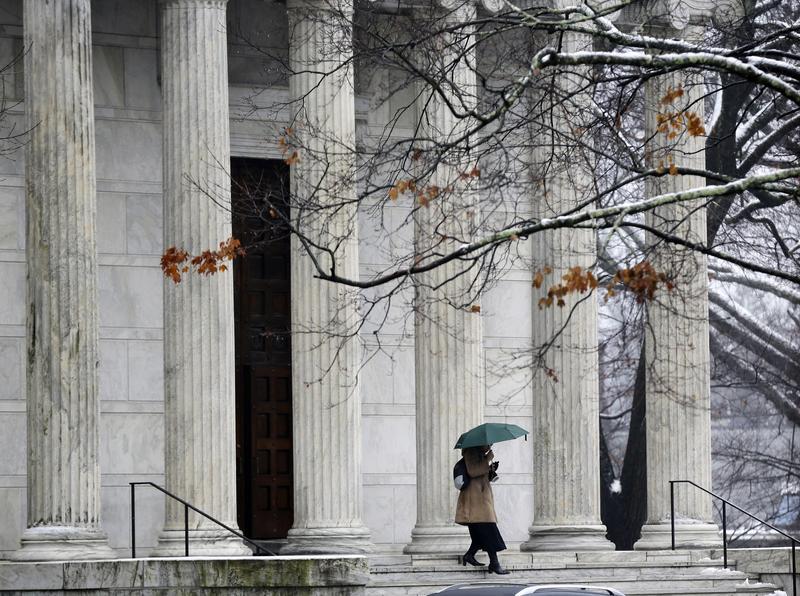With this article I begin my 12th year as an opinion columnist for The Indianapolis Star. Of the more than 190 published columns, a good number have addressed the Middle East. Over the years I have tried to bring a scholarly or analytical focus to my writings, but rarely have I written about the academy itself.
The university should be a place for vigorous debate, critical inquiry and the pursuit of knowledge without constraint from ideological blinders or prejudices. Last month, the American Studies Association violated these most basic tenets of academic freedom by instituting a boycott of Israeli universities.
Of the approximately 5,000 ASA members, only 1,252 voted on the resolution, with 66 percent of those approving the organization’s first boycott in its 63-year history. The ASA has never boycotted a country that actually suppresses academic scholarship or imprisons journalists or political dissidents, such as China, Iran, Turkey, Cuba, North Korea or the old Soviet Union. When asked why they were targeting Israel, ASA president Curtis Marez said flippantly, “One has to start somewhere.”
The ASA notes that it is not boycotting individual Israeli professors, just any contacts or collaborations with Israeli academic institutions. In a form of guilt by association, it argues that all Israeli universities (which employ Arab as well as Jewish faculty and staff) are de facto complicit in the Israeli government’s mistreatment of Palestinians. The “BDS movement” which advocates “boycotts, divestment and sanctions” against Israel may have just gained a foothold in the American academy, but, ironically, by targeting Israeli universities it has misfired. Some of the most vociferous criticism of Israeli policies – as well as the “post-Zionist” academic discourse that challenges the very nature of the state – comes from within the vibrant and multi-vocal Israeli universities that are being boycotted.
The reaction to the boycott has been swift. Several past ASA presidents have denounced it, as has the American Association of University Professors, which has always opposed academic boycotts. Even as it advocated sanctions against apartheid South Africa in the 1970s, the AAUP refused to ban interactions between universities. “Academic boycotts strike directly at the free exchange of ideas,” the AAUP declares on its website.
Academic boycotts and academic freedom are mutually exclusive, and so far more than 100 American colleges and universities have renounced the ASA’s act, including Harvard, Columbia, Princeton and Yale. John Garvey, president of Catholic University, put it most colorfully, declaring that the ASA “has appointed itself as a kind of inept volunteer fire department, aiming to put out the Israeli-Palestinian conflagration by throwing gasoline on the fire. That’s not exactly right. It has decided to pour gas not on the source of the fire but on bystanders, some of whom are trying to extinguish the flames. No good can come of punishing academic institutions for the shortcomings, real and perceived, of their nations’ leaders and policies.”
Indiana University President Michael McRobbie, explaining IU’s withdrawal from the ASA on Dec. 23, stated that, “Boycotts such as these have a profound chilling effect on academic freedom, and universities must be clear and unequivocal in rejecting them.” The chair of Marian University’s History and Social Science department, Raymond Haberski, echoed these sentiments. A former distinguished chair in American Studies at the Copenhagen Business School when he was a Fulbright scholar, Haberski is an ASA member who opposes the boycott. “An academic organization should not be a political action committee,” he told me. Noting that the boycott lacks any enforcement power, Haberski suggested that “it’s just a grandiose moral position,” an easy call for a marginal organization that has been influenced by the BDS movement.
I have been highly critical of Israeli policies when I believed it was called for, and I will likely do so again. But the ASA’s boycott gives credibility to the fundamentally illegitimate tactic of collective academic punishment: a blind and sweeping demonization of all of Israel’s universities, which stifles academic discourse and holds Israel to a standard different from all other countries. This is not the way to promote positive change or movement toward peace.






